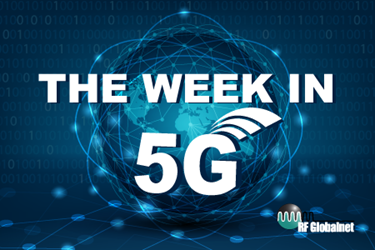The Week in 5G: 3/9/2021 — DISH To Acquire Republic Wireless; India Explores Revamp Of Telecoms Laws
By Ed Biller

U.S. carrier DISH Network announced this week its intent to acquire Republic Wireless, an MVNO service operating on T-Mobile’s network. A DISH press release states that, with the acquisition, Dish will assume about 200,000 customer relationships, plus “the Republic Wireless brand and other supporting assets.”
Republic Wireless’ Relay division is not included in the transaction and will continue to operate as a standalone company, becoming a wholesale customer on DISH's 5G network. Per the release, “Relay provides communication and productivity solutions for frontline teams in hospitality, facilities management, manufacturing, healthcare and education.”
In Russia, carrier announced this week its launch of that nation’s first multi-location pilot 5G network for end consumers. The new network covers 14 public spaces in Moscow, including Gorky Park, Moscow State University, and the Skolkovo Innovation Center. An MTS press release states the network “will provide 5G connectivity at speeds of up to 1.5 Gbps to invited subscribers with compatible 5G smartphones.”
In India, Mint reports the country’s Department of Telecommunications (DoT) has proposed updating its telecommunications laws before 5G is rolled out in earnest. The Indian Telegraph Act and the Indian Wireless Telegraphy Act came into effect in 1885 and 1933, respectively, states the report, noting the National Law University (NLU), Delhi, has been engaged to suggest rule changes necessary due to modernization, including machine-to-machine (M2M) communication and the internet of things (IoT).
In the UK, a collaboration between several organizations has resulted in the UK’s first 5G-connected tram. Computer Weekly reports the trial aims to test 5G’s ability to “help operators establish capacity, minimise crowding in stations, and provide onboard services,” as well as “help engineers remotely identify issues in carriages and across the infrastructure, predicting and responding to faults before they occur.”
Finally, Martin Cooper — credited as the father of the cellular telephone — weighed in on a number of 5G topics with CNET’s Daily Charge podcast recently. Among other things, Cooper stated the industry’s fervor to maximize download speeds and explore use cases like autonomous driving needs to take a backseat to making basic wireless broadband access more ubiquitous.
He also savaged the exorbitant prices being charged for wireless spectrum in FCC auctions. "Someone that has paid billions of dollars for radio airwaves would not appreciate the idea of plentiful spectrum," he said. “"We haven't finished the internet of people yet, and the industry is already emphasizing the internet of things.”
